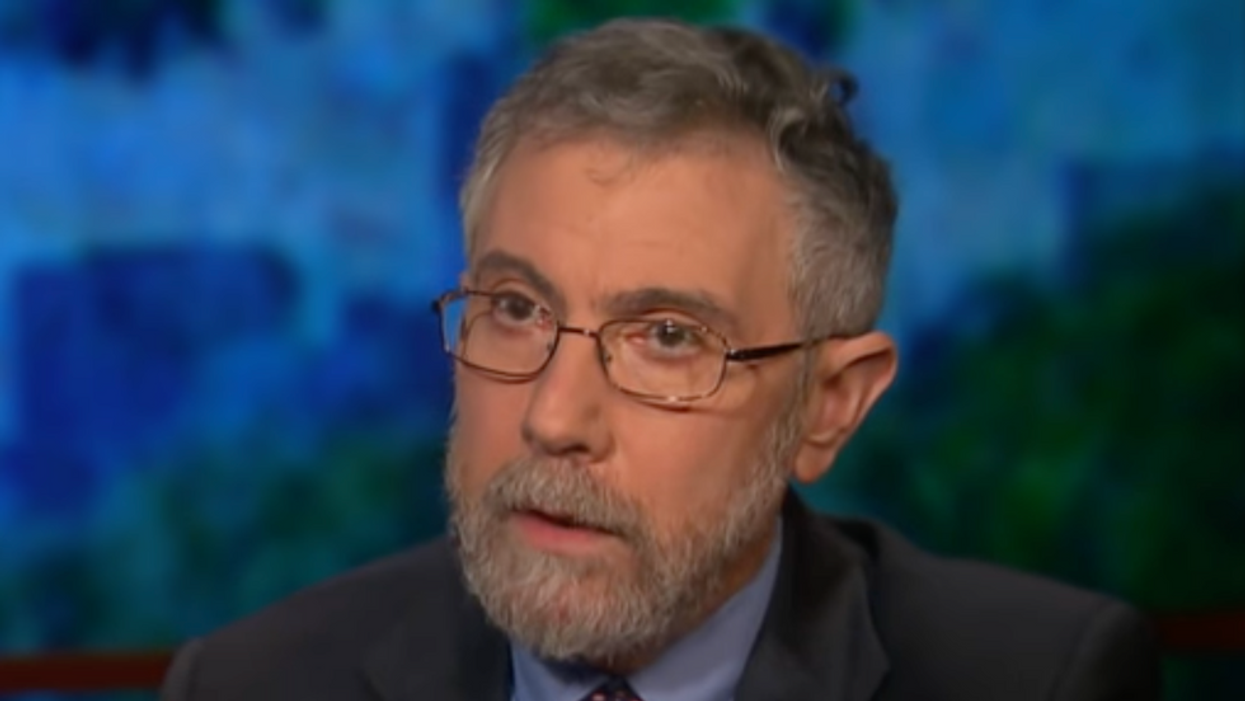'Incredible fecklessness': Paul Krugman and 2 Ukrainian economists weigh Russia invasion’s global economic impact


On Monday, March 14, liberal economist and New York Times columnist Paul Krugman had an online conversation with two researchers at the Kyiv School of Economics in Ukraine: Tymofii Brik and Tymofiy Mylovanov. And during their hour-long discussion, which has been posted on Twitter and Facebook/Meta, the three of them got into the economic impact the Ukraine/Russia war could have.
Mylovanov is the president of the Kyiv School of Economics, while Brik is an assistant professor. The conversation comes as Ukraine, including the capitol city of Kyiv, is under attack from Russian troops and Ukrainian forces are resisting their aggression.
Krugman told Mylovanov and Brik, “My solidarity (is) completely with you. It is inconceivable to me what you must be going through. But by all means, you have many, many, many supporters in the United States, and in the western world.”
Krugman discussed the Biden Administration and NATO’s economic sanctions against Russia and the “implications for the global economy,” including the effect that the sanctions could have on gas prices.
The Times columnist told Mylovanov and Brik, “Through incredible fecklessness, the Europeans and the Germans in particular allowed themselves to become highly dependent on imports of Russian natural gas. And so far, they’ve been willing to sanction those. There is now a very active discussion of: well, how critical would it be if there was a drastic drop — maybe even a complete cutoff — of those imports? And the answer is: it would hurt (but) is not as catastrophic as often perceived. At least, that’s the best we can tell.”
Krugman also told the Ukrainian economists, “We’re having a Putin shock to the world economy, but probably not a Putin recession. And that makes a big difference, obviously, if that’s what happens…. I’m relatively optimistic on that front.”
Krugman noted that for Germany, it would be “difficult to substitute away from natural gas” but “not impossible.”
The New York City resident told Mylovanov and Brik, “We’re still talking about the need to cut natural gas consumption by something like 30% in Germany, which is a pretty big deal…. It’s doable; whether the political will is there, God knows.”
Mylovanov agreed with Krugman’s comments, saying, “There is a question of political will. What I have seen is that often, the political will somehow is lacking. But we’ll see how things develop. I’m hoping for the best for Ukraine and for the world.”
Mylovanov added that “Ukraine is better diversified now, away from dependence on Russian energy than Europe.”